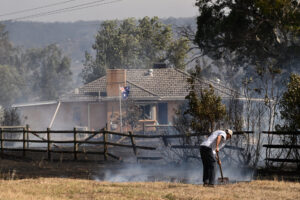Miners should pay premium
Listening to the mining industry complaining about the high exchange rate is like listening to a three-year-old complaining about the noise of their own tantrum. It simply adds insult to injury. The surge in world demand for our resources and the flood of foreign money into Australia to buy or build mining assets has been a major driver of the 43 per cent surge in the exchange rate from $US0.736 in 2004 to $US1.056 now. As the Australian dollar hit the $US0.80 mark the strain on other exporting sectors began to show, particularly in manufacturing, tourism and agriculture. ABS statistics show the steady decline in employment in manufacturing from 1,051,100 in 2004 to 962,100 today. For the first time in decades manufacturing employment is consistently below one million. But, we were told, don’t worry about it.
Related documents
Between the Lines Newsletter
The biggest stories and the best analysis from the team at the Australia Institute, delivered to your inbox every fortnight.
You might also like
Burning homes and rising premiums: why fossil fuel companies must pay the bill
Another summer, another round of devastation: homes lost, communities evacuated, lives upended.
Why a fossil fuel-free COP could put Australia’s bid over the edge
When the medical world hosts a conference on quitting smoking, they don’t invite Phillip Morris, or British American Tobacco along to help “be part of the solution”.
Pay a fortune in premiums or risk losing everything – the brutal reality of Australia’s insurance crisis
Struggling families who ditch their home and contents insurance would lose three-quarters of their wealth if their home was destroyed, according to new research by The Australia Institute.



